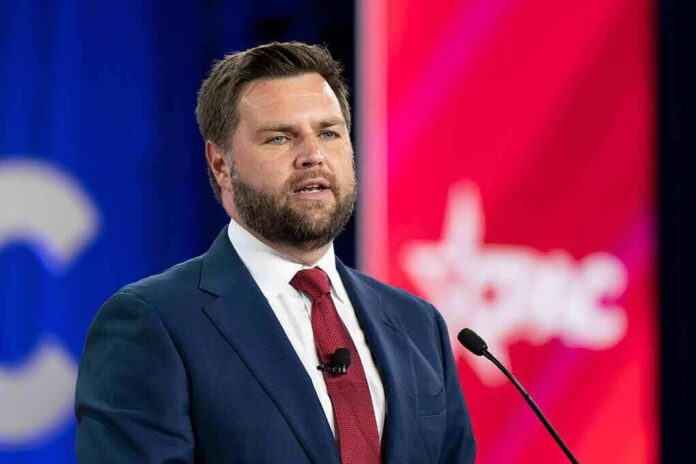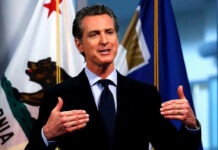
As federal forces descend on D.C., a new debate unfolds over the balance of power between local governance and federal oversight.
Story Highlights
- President Trump initiates federal intervention in D.C. to combat crime.
- Democratic leaders condemn the move, citing threats to local autonomy.
- Vice President Vance questions Democratic priorities in public safety.
- Partisan tensions escalate as federal control expands.
Trump’s Federal Intervention in D.C.
On August 11, 2025, President Donald Trump declared a crime emergency in Washington, D.C., authorizing a federal intervention to address rising crime rates in the capital. This move includes deploying the National Guard and increasing federal law enforcement presence, marking a significant expansion of federal control over local public safety measures. Trump’s administration argues that the intervention is necessary due to persistently high violent crime rates, claiming it is a decisive response to restore order and protect residents.
This federal intervention in D.C. represents an unprecedented level of federal involvement in a major U.S. city’s law enforcement, drawing sharp criticism from Democratic governors and city leaders. They argue that these actions undermine local autonomy and are politically motivated rather than grounded in genuine public safety concerns. The clash highlights the ongoing debate over the appropriate balance between federal authority and local governance, particularly in a city like D.C. that lacks statehood and has unique federal oversight structures.
Partisan Reactions and Criticisms
Vice President JD Vance has publicly defended the federal crackdown, questioning the priorities of Democratic leaders who oppose the intervention more fiercely than the crimes themselves. Vance’s statements aim to frame the debate as a partisan issue over public safety priorities, suggesting that Democrats are more concerned with preserving local autonomy than addressing the high crime rates affecting their communities. This reframing has intensified partisan tensions, with each side accusing the other of politicizing public safety issues for political gain.
The reactions from Democratic leaders have been robust, with D.C. Mayor Muriel Bowser and other local officials leading the charge against what they perceive as an overreach by the federal government. They emphasize improvements made through local reforms, citing a 26% decrease in violent crime rates since 2024. These leaders argue that federal intervention threatens to undo progress by imposing top-down solutions that disregard local conditions and undermine community trust in law enforcement.
Implications for Local Governance and Federal Authority
The federal intervention in D.C. raises critical questions about the future of local governance and federal authority in the United States. In the short term, the increased federal law enforcement presence could lead to legal challenges and heightened political tensions. Long-term implications may include setting precedents for federal intervention in local crime issues, influencing debates over D.C. statehood, and impacting national crime policy discourse.
Vance questions why Democrats are angrier about Trump’s plan to tackle crime than crime itself https://t.co/P70uzasf93 via @OANN
— NetChatTV (@NetChatTV) August 26, 2025
As the debate unfolds, the power dynamics between federal and local authorities will continue to evolve, with potential consequences for the residents of D.C. and other cities that may face similar interventions. The outcome of this intervention could shape future approaches to managing urban crime and redefine the roles of federal and local governments in addressing public safety concerns.












